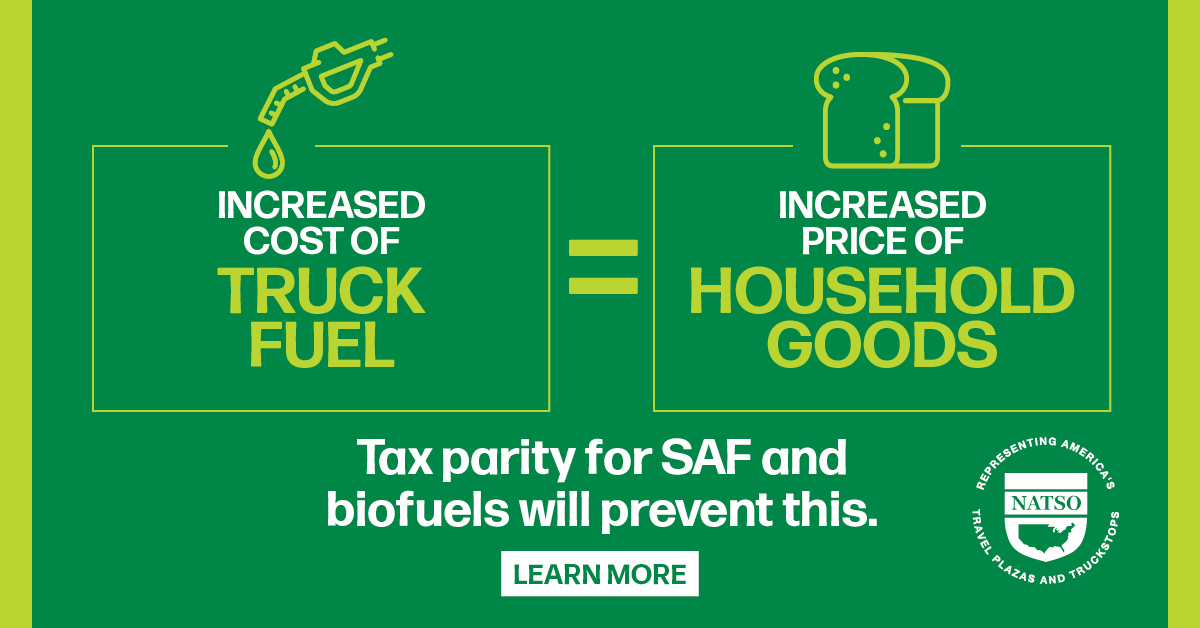Oppose Special Treatment for SAF
Congress has always been a partner to the transportation industry as we work to reduce our carbon footprint. The biodiesel tax credit (BTC) has successfully decreased carbon emissions and promoted America’s energy security.
The BTC can continue fulfilling its critical purpose provided that biodiesel and other alternative transportation fuels, including sustainable aviation fuel (SAF), have tax parity.
The Inflation Reduction Act of 2022 enacted for the first time a distinct credit of up to $1.75 per gallon for the sale or use of SAF, but kept the credit for other fuels like biodiesel and renewable diesel at $1.00 per gallon.
A higher tax credit for SAF will cause feedstocks and investment capital to shift away from renewable diesel and biodiesel production toward renewable jet fuel production. A finite amounts of feedstock available in the United States, however, has created a zero-sum game for these fuels.
America's renewable diesel and biodiesel supply will be cut short because they are all made from the same limited feedstock. Renewable diesel and biodiesel are essential for all other transportation sectors, including commercial trucking.
Consumers will pay the price for the additional tax incentive for SAF.
The trucking industry delivers more than 80 percent of America's goods and relies on biofuels, like renewable diesel and biodiesel, to keep emissions low. Additional tax incentive for SAF mean that America's supply of biofuels will become limited and more expensive.
Furthermore, American consumers, who are already suffering the effects of inflation, will pay more for everyday household goods like groceries, electronics, medication, and more.
American families can also expect their home heating bills to increase as the availability of biofuels – used to heat our homes - decreases.
Our environment will be no better off from SAF, despite claims made by the airline industry.
It's proven that SAF is not only more energy intensive to produce, but it also saves fewer carbon emissions than biodiesel and renewable diesel.
Biodiesel and renewable diesel have been reducing emissions for more than a decade. These fuels eliminated more than 18 million tons of carbon emissions on California's roads between 2011 and 2019.
While emissions from the airline industry alone will decrease, limiting the availability of all other biofuels will only increase the U.S. transportation sector's overall carbon footprint.
Congress, don't let American taxpayers foot the bill for another airline industry handout.
Any tax incentive for the production of SAF must be at parity with the biodiesel tax credit to ensure the transportation sector as a whole continues to decrease emissions and maintains costs for American consumers.
To ensure we do not reverse progress in reducing the carbon footprint of the transportation sector, Congress must extend the biodiesel tax credit at parity today.
Letter to Congressional Leadership. You can also read our letter to congressional leadership here.
Get the Facts: Setting the Record Straight on the Critical Role of Advanced Renewable Liquid Fuels in Reducing Over-The-Road Transportation Emissions.


